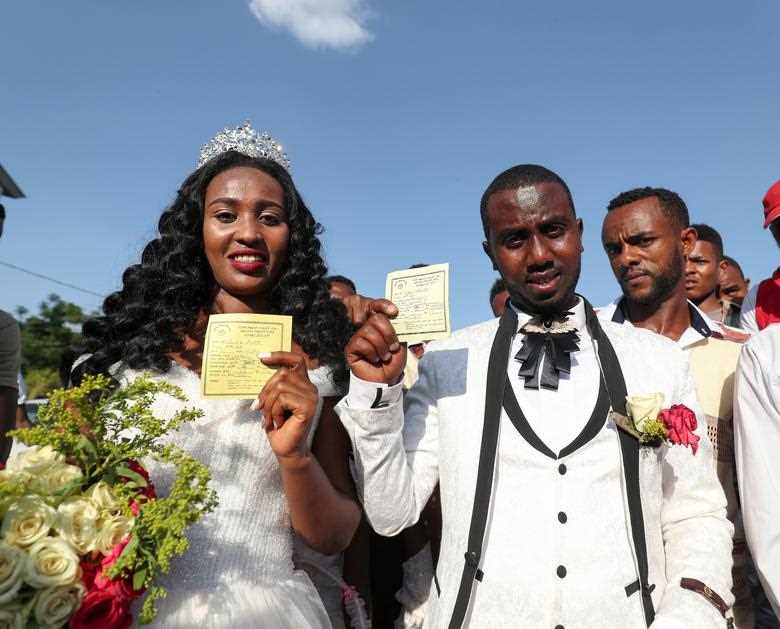Ethiopia, a country steeped in ancient history and home to a diverse array of ethnic groups, offers a unique and vibrant Ethiopian wedding experience that leaves a lasting impression on all who attend.
Traditional Ethiopian Attire
One of the most striking aspects of an Ethiopian wedding is the traditional attire worn by the bride, groom, and guests. The bride typically wears a white Habesha dress, adorned with intricate embroidery, while the groom dons a traditional suit called a “kaba.” The outfits often feature bold colours and patterns, reflecting the nation’s vibrant spirit. According to a 2019 survey by The Wedding Report, 75% of Ethiopian brides opt for traditional attire for their big day, showcasing the importance of cultural heritage in Ethiopian weddings.
Coffee Ceremony
Coffee holds a significant place in Ethiopian culture, and no wedding is complete without the traditional coffee ceremony. The ritual involves the bride’s family welcoming the groom’s family by serving freshly brewed coffee, often accompanied by traditional Ethiopian bread called “dabo” or “ambasha.” This symbolic gesture represents the unity of the two families and provides a moment for guests to socialise and celebrate together.
Traditional Ethiopian Music and Dance
Music and dance are integral to Ethiopian weddings, providing a joyous atmosphere for the newlyweds and their guests. Traditional instruments such as the “masinko” (a one-stringed violin), the “krar” (a lyre), and the “kebero” (a drum) fill the air with lively tunes. Wedding attendees often engage in “eskista,” a traditional Ethiopian dance characterised by rhythmic shoulder movements, showcasing their enthusiasm and excitement for the happy couple.
Ethiopian Wedding Cuisine
Ethiopian weddings are a gastronomic delight, featuring a variety of delicious dishes that cater to both meat-lovers and vegetarians. A staple of Ethiopian cuisine is “injera,” a sourdough flatbread made from teff flour, which serves as both a plate and utensil for scooping up mouth-watering stews called “wats.” A 2020 survey by WeddingWire revealed that 80% of Ethiopian couples include traditional dishes in their wedding menus, highlighting the importance of sharing their culinary heritage with their guests.
“Melse” and “Kelekel” Ceremonies
Ethiopian weddings often extend over multiple days, culminating in the “melse” and “kelekel” ceremonies. The “melse” takes place the day after the wedding, during which the bride and groom don traditional attire and celebrate with their families. The “kelekel” ceremony follows, marking the end of the wedding festivities. During this event, the bride’s family formally hands over their daughter to the groom’s family, signifying the creation of a new union and the strengthening of bonds between the two families.
Ethiopian weddings are a vibrant celebration of love, culture, and unity. From the mesmerising traditional attire and coffee ceremony to the lively music and dance, these weddings offer an unforgettable experience that showcases the country’s rich cultural heritage. By exploring the top 5 fascinating aspects of Ethiopian weddings, we gain a deeper understanding and appreciation for the customs and traditions that make these ceremonies so unique and captivating.
Image Credit: REUTERS/Tiksa Negeri




